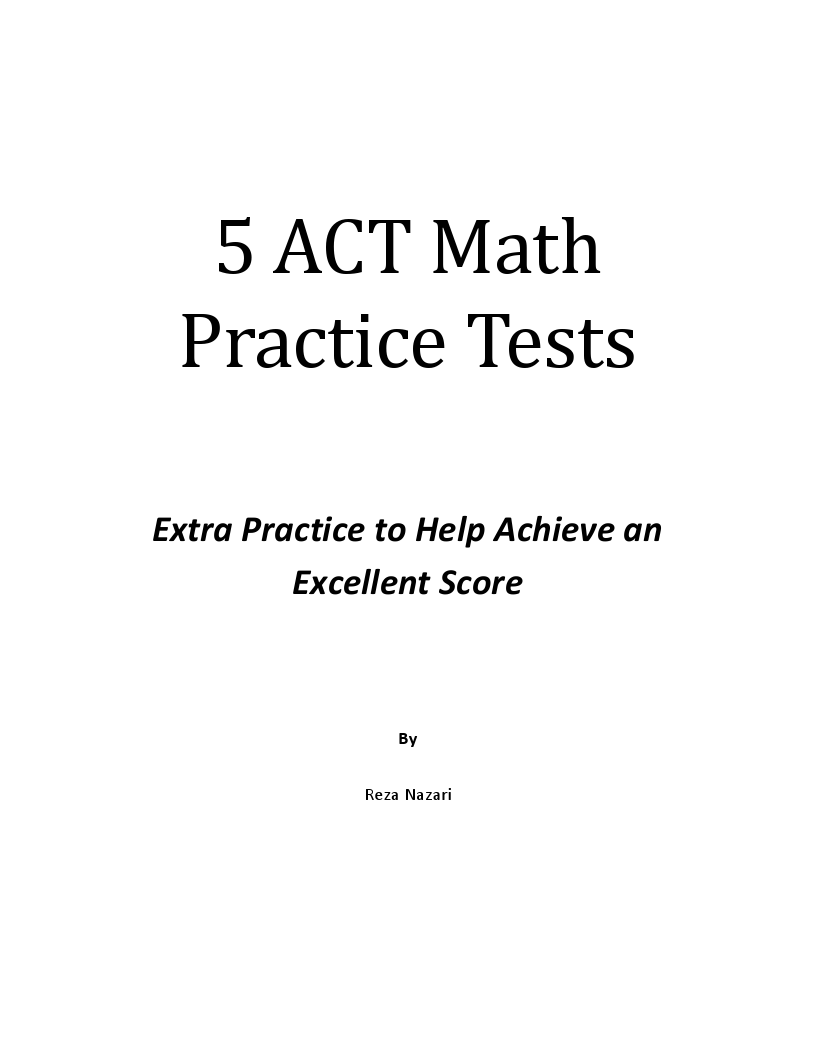
The Official ACT Prep Guide is, well, official. The books, apps, and other resources on this list are an excellent way to start preparing for the ACT. Even if you do take a class or hire a tutor, you’ll have knowledge and skills from your self-study that will make guided ACT prep easier and more productive. Self-guided ACT prep is a great way to start studying for the test it’s the most flexible and least expensive type of ACT preparation. Getting familiar with the ACT, learning skills and strategies relevant to the test, and then applying all of that by practicing are the main ways you can prepare for the ACT. There are tons of options for ACT prep - from books to online courses to in-person tutors - and so, tons of answers to this question. There are plenty of benefits to landing a high ACT score, and working toward a higher score now, no matter where you are, can be a great choice in the long run. Conversely, high scores can earn you credit for certain core college classes, without having to take the class! ACT scores can also play a crucial role in determining who receives merit based scholarships, as well as scholarships from schools and other organizations. Students with low ACT scores may need to take remedial courses. ACT scores can also affect your specific course load. Depending on the schools you want to attend, you likely need to take the ACT to get into college. Many colleges and universities specify a minimum ACT score for admissions. What are the benefits of a high ACT score? Every student should take some time to research the tests, to browse sample questions, and consider personal skills and needs.

Ultimately, what test you should take comes down to personal preference and goals. The ACT gives you less time per question than the SAT, and tests you on analyzing experiments and data in the Science section, while not testing you explicitly on vocabulary like the SAT does. The ACT has four sections - English, Math, Reading, and Science - while the SAT has three sections - Reading, Writing, and Math. Though similar, the tests vary in a few notable ways.

Whether or not to take both is up to the individual student. Many colleges will accept scores from ACT and SAT college admissions tests. Scores on the ACT range from 0–36, and the test is made up of English, Math, Reading, Science sections, as well as an optional Writing section. What is the ACT?Īlongside transcripts, essays, extracurricular activities, and other aspects of your application, college admissions officers look at ACT scores to decide whether or not to accept you for admission at their school.

But first, a little bit of information about the ACT. Below is everything you need to start prepping for the ACT, from ultimate guides, to books for bad test takers, to mobile games, to study times, to meditations. This article lists the twenty best self-guided ACT prep resources, and offers information to help you decide which ones to add to your bookshelf, phone, or bookmarks tab. Though tutors, teachers, courses, and prep centers can be very helpful, there’s lots you can do on your own to improve your ACT score. Preparing for the ACT can help you learn what the test looks like, develop skills, and ultimately get a higher score.

Many colleges and universities require this test for admission, and it can be quite a bit different and more difficult than the tests most people encounter in high school. Students who are considering going to college soon spend plenty of time thinking (or stressing!) about the ACT. She has more than five years of experience in education, teaching and developing curriculum for public schools and nonprofits in subjects ranging from college test prep to art history to animation to English for Speakers of Other Languages (ESOL). Beth cofounded and formerly served as an educator and executive director for Opus in Louisville, Kentucky, a nonprofit organization aimed at preparing high school students for a successful college career through a comprehensive ACT course.


 0 kommentar(er)
0 kommentar(er)
